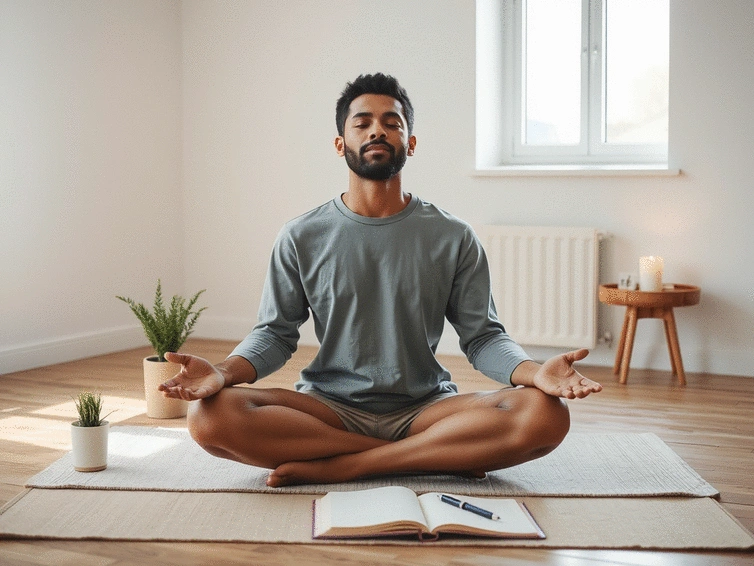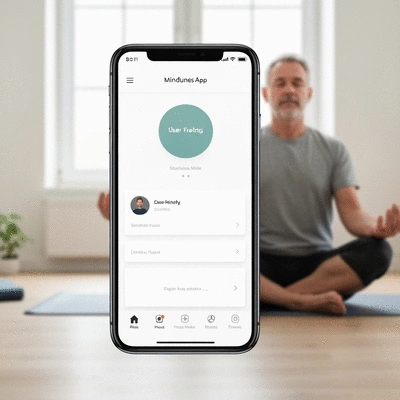Core Principles of Mindfulness
- Awareness: Recognizing thoughts and feelings.
- Acceptance: Experiencing emotions without judgment.
- Non-judgment: Observing experiences neutrally.

Have you ever felt overwhelmed by life's challenges, wondering how to regain your balance? Mindfulness might just be the key to transforming your mental resilience and overall well-being. Let’s dive into how this powerful practice can help you navigate life with grace and confidence!
Mindfulness is a cornerstone for mental resilience. By cultivating awareness, we enhance our ability to adapt and recover from life's adversities. Below are the key benefits and practical steps for integrating mindfulness into your daily routine.
In our fast-paced world, mindfulness has emerged as a powerful tool for enhancing mental resilience. But what does mindfulness truly mean, and how can it impact our ability to bounce back from challenges? Let’s explore this vital connection together!
At iFit Magazine, we believe that understanding mindfulness is the first step towards personal empowerment. Mindfulness encourages us to stay present, fostering an awareness that can help us navigate life's ups and downs with grace and confidence.
Mindfulness is often defined as the practice of focusing one’s awareness on the present moment while acknowledging and accepting one's thoughts, feelings, and bodily sensations. It’s about being fully engaged in the here and now without judgment!
These core principles create a solid foundation for developing resilience. By practicing mindfulness, we learn to respond to stressors thoughtfully rather than react impulsively, paving the way to greater mental strength.
Mental resilience refers to our ability to adapt and recover from adversity. It’s about maintaining a positive outlook even when faced with challenges. But why does this matter? Because resilience not only helps us cope but also empowers us to grow!
By fostering mental resilience through mindfulness practices, we can enhance our overall well-being and lead a more balanced life. So why not start integrating mindfulness into your daily routine? You’ll be amazed at the positive changes it can bring!

We want to hear from you! Have you started incorporating mindfulness into your daily routine? Share your experience below:
As we explore the fascinating relationship between mindfulness and mental resilience, it becomes clear that incorporating mindfulness into our lives can significantly enhance our overall well-being. Mindfulness practices help us cultivate awareness of our thoughts and feelings, enabling us to respond rather than react to life's challenges. This shift in perspective is crucial for developing the resilience needed to navigate difficult times.
To summarize, here are some key takeaways on how mindfulness contributes to resilience:
These insights remind us that mindfulness is not just a trend but a potent tool for enhancing our mental health and resilience. We can all benefit from integrating these practices into our daily lives!
At iFit Magazine, we believe that embracing mindfulness is a transformative journey worth taking! By incorporating mindfulness into our routines, we allow ourselves to experience personal growth in various aspects of our lives. The beauty of mindfulness lies in its accessibility; anyone can start, regardless of their background or previous experience.
Remember, you don’t have to dive into complex practices right away. Start small! Here are some steps to get you started:
As you progress, you'll likely notice an increase in your resilience and ability to cope with life's ups and downs. So, let’s take that first step together—your wellness journey awaits!
To dive deeper into the world of mindfulness, there are countless resources available that can support your journey. Whether you’re looking for books, online courses, or guided meditations, the options are vast. Here are some valuable resources I recommend:
These resources are designed to help you enhance your practice and deepen your understanding of mindfulness!
I invite you to reflect on your own experiences with mindfulness! Have you tried any mindfulness practices? How have they impacted your life? Sharing our journeys can create a sense of community and inspire others to embark on their mindfulness journeys. Feel free to reach out and share your thoughts with me here at iFit Magazine; I’d love to hear your stories!

In today's digital age, mindfulness apps have become increasingly popular, offering convenient ways to practice mindfulness anytime, anywhere. Here are a few top apps that can enhance your mindfulness journey:
Integrating these apps into your daily routine can make mindfulness practice more accessible and enjoyable, paving the way for lasting change in your mental health and resilience!
The core principles of mindfulness include awareness (recognizing thoughts and feelings as they arise), acceptance (allowing emotions without trying to change them), and non-judgment (observing experiences neutrally).
Mindfulness helps you observe your emotions without immediate reaction, allowing for a more thoughtful response to stressful situations rather than an impulsive one. This practice strengthens your ability to manage your emotional state effectively.
Mental resilience is crucial because it refers to your ability to adapt and recover from adversity, maintain a positive outlook, and cope with stress effectively. It empowers personal growth and contributes to overall well-being.
Practical steps include starting with just a few minutes of focused breathing daily, using mindfulness apps for guided meditations, and practicing daily reflection by observing feelings during everyday activities like eating or walking.
You can find resources such as books like "The Miracle of Mindfulness," online courses on platforms like Coursera or Udemy, and mindfulness podcasts like "The Daily Meditation Podcast" for daily tips and guided sessions. Research also indicates that mindfulness-based interventions are effective in enhancing resilience. Additionally, studies highlight the role of mindfulness in promoting social-emotional learning, which further supports mental well-being.
Here is a quick recap of the important points discussed in the article:
Choosing the Right Fitness App

Choosing a fitness app can feel like a daunting task, especially with the plethora of options availa
Flavorful Low-Salt, Low-Sugar Recipes

What if reducing salt and sugar could not only enhance your health but also transform your culinary
Functional Fitness for Better Balance

Are you ready to transform your workout routine into something that truly benefits your everyday lif
Choosing the Right Fitness App
Flavorful Low-Salt, Low-Sugar Recipes
Functional Fitness for Better Balance
Family Fitness: Inspiring Success Stories
From Loss to Hope: Resilience